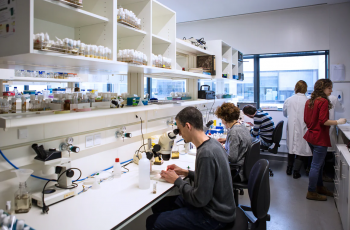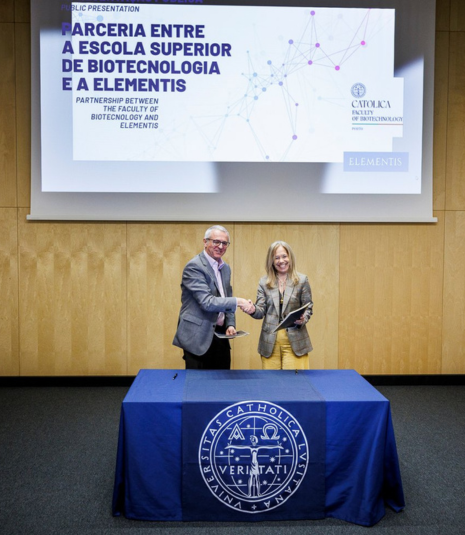Porto researchers find a way to halt progression of pancreatic cancer

Porto.
· 12 Jan 2022
A team of researchers from the Institute for Research and Innovation in Health (i3S) of the University of Porto found a way to stop the progression of pancreatic cancer in the communication between cells. The discovery has already been published in one of the most important gastroenterology and hepatology medical journals.
According to the statement quoted by Lusa news agency, what the researchers realized was that "in pancreatic tumors, cancer stem cells communicate with tumor cells, giving them orders for the tumor to grow and resist chemotherapy".
Although fewer in number, "it is the stem cells that communicate the most with the other cells. They are, in fact, the ones that command and transmit the directives for the tumor to survive", adds the team.
What the i3S researchers did was to focus on this communication, made through the secretion of extracellular vesicles. They found that, inside the extracellular vesicles, there is a protein, Agrin, that, "when sent to other cells, pushes the tumor to grow and overcome adversities, namely chemotherapy".
It is this communication that must be stopped, they concluded, and this can be done using inhibitor molecules. "We use antibodies to block the Agrin protein and we also found a slowdown in tumor growth", adds team leader Sónia Melo.
From here, there may be two paths to follow in the research: the "use of drugs to prevent communication between cancer cells" and "antibodies to block the Agrin protein".
For the researcher, both methods "have potential as therapeutic solutions to be applied by clinicians to patients with pancreatic cancer, with the aim of halting tumor progression and minimizing therapeutic resistance".
Every year, about 1,800 cases of pancreatic cancer appear in Portugal, one of the most lethal because it is usually detected in an advanced stage of the disease.
The i3S work, done in collaboration with Luz and Beatriz Ângelo Hospitals, took place within the Porto Comprehensive Cancer Center, a consortium that, in partnership with IPO, organized last year the European Summit on Cancer Research. The highlight of the conference was the presentation of the "Porto Declaration on Cancer Research", which aims to encourage European authorities to strengthen cancer research.




